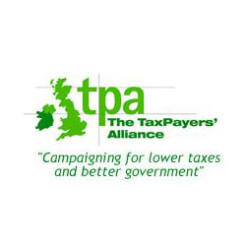The Taxpayers’ Alliance has attacked the British Council for spending a total of £6.7m on its credit cards over the past two years, including £2m on hotel bills and £1m on flights.
The Alliance, which campaigns for lower taxes, used a Freedom of Information request to get a breakdown of the British Council’s staff credit card bills, which included stays at five-star hotels such as the Renaissance Hotel in Hong Kong, the Caesar Park in Rio De Janeiro and the Park Hyatt in Dubai.
Other spending included £4,844 on the London Eye, £1,056 on a spa-salon in Russia, £142 on a haircut and £80 on the Yellow Duckmarine (duck tours on the Thames). The credit card was also used for items such as cinema trips, iTunes purchases and Body Shop purchases.
Matthew Sinclair, director of the TaxPayers' Alliance, said:
"Taxpayers will be worried that they are being asked to support British Council bureaucrats living the high life abroad while they have to tighten their belts at home.
"Of course the organisation’s job is to promote Britain abroad which means it will incur travel and accommodation costs but staff need to keep these to a minimum. They need to explain many of the items bought with their credit cards which look extravagant, like the huge amounts spent at upmarket hotels. The British Council’s new year’s resolution should be to cut these bills and be more transparent about how they spend taxpayers’ cash."
In response, a British Council spokesman said that for every £1 of taxpayer money invested, the British Council earns £2.65 in additional income.
He added: "Our work in English teaching, education and arts builds valuable relationships for the UK in 110 countries around the world, so it naturally involves international travel and hosting senior visitors. We have clear policies about corporate card use and do not tolerate their misuse. This corporate card expenditure represents 0.5 per cent of our total income, of which 70 per cent is earned through business activities such as teaching English and 30 per cent comes from a government grant. All our work supports the UK’s economy and international reputation.
"We ask our staff to use corporate cards as they are an efficient way to make payments for running our programmes on behalf of the UK. These cards are used extensively in well-run private sector organisations as a lower-cost alternative to processing suppliers' payments and invoices.
"Like most organisations that receive some public money, our funding is being reduced by 26 per cent by 2015 and we have been both cutting costs and earning new income so we can continue our work for Britain. Practical steps include flying staff and visitors economy or premium economy, not business class.”
The British Council is a charity which is run at arm’s length from the Foreign and Commonwealth Office. It is ultimately accountable to the Secretary of State for Foreign and Commonwealth Affairs who is responsible for its actions to Parliament. Roughly one-third of its funding comes direct from government grants.
Its total turnover in 2010/11 was £693m, of which its grant-in-aid from the Foreign and Commonwealth Office was £190m. The remainder was generated through trading activities such as English language teaching.









